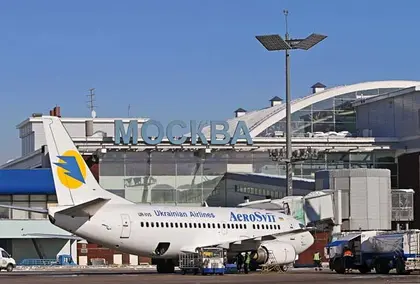Out of 80 routes operated by Ukraine’s biggest airline, only six will remain active through the end of January, an official company statement said. The company promises to keep international connections to Bangkok, New York and Beijing, and domestic flights between Kyiv, Ivano-Frankivsk and Dnipropetrovsk running through Jan. 30.
Boryspil International Airport belives that Ukraine International Airlines will take over AeroSvit’s suspended flights. “UIA is currently fully able to take a strategic decision to develop long-distance flights and this will definitely increase the transfer of passenger traffic at the airport,” airport officials said in a statement.
JOIN US ON TELEGRAM
Follow our coverage of the war on the @Kyivpost_official.
Meanwhile, problems with AeroSvit continue to cause delays.
Jason Pochapsky, a Canadian living in Bangkok, was one of many AeroSvit passengers stranded by a delayed Jan. 10 flight to Kyiv.
Pochapsky ended up waiting for 12 hours before deciding his business trip could wait no more. He bought a ticket with another airline and has little hope of getting the $1,100 he paid for the Aerosvit flight.
Meanwhile, other flights are being dropped altogether, including connections to Moscow, Istanbul and St. Petersburg. Most European flights and other middle-distance routes are also suspended and the company’s small aircraft have been transferred to UIA, an AeroSvit employee told Kyiv Post under condition of anonymity for fear of being fired.
And even though the airline claims its problems are the result of a misunderstanding connected to a bankruptcy application filed with the Kyiv Oblast Commercial Court on Dec. 29, sources inside the company told Kyiv Post that the whole system is falling apart.
“No one knows anything. We almost don’t fly anymore and if we do it’s just to pick up some remaining passengers at the destinations that used to be our regular ones, like Goa,” said one employee, who refused to be identified out of fear of losing employment. “Besides that, even if we do fly, we don’t even get our per diem and starting on Jan. 16 we were promised to start getting dismissal letters.”
The employee said the ground staff were the first to get the axe, announced months ago.
Ukrainian billionaire Ihor Kolomoisky controls AeroSvit, Dniproavia, Donbassaero and Wind Rose airlines.
Kommersant newspaper reported on Jan. 17 that Kolomoisky had acquired a 75 percent stake in Ukraine International Airlines at the end of 2012, but the airline denied it.
Up until these events, Kolomoisky had virtually monopolized Ukrainian air travel. His combined assets allowed him to enjoy control over 60 percent of Ukraine’s air transport market. According to Forbes Ukraine, billionaire Viktor Pinchuk also has a 24.99 percent of stake in AeroSvit.
Kolomoisky was unavailable for comment on this story.
Aerosvit’s partner Donbassaero and Dniproavia, also owned by Kolomoisky, appear to be going under. Donbassaero on Jan. 10 filed for bankruptcy, according to Interfax-Ukraine news agency. Dniproavia has suspended its flights, according to UNIAN news agency.
In May, Kolomoisky’s three low-cost European airlines, Cimber Sterling in Denmark and Skyways and City Airline in Sweden, filed for bankruptcy.
Ukrainian lawyer and aviation expert Andriy Guck said that if Kolomoisky emerges as the owner of UIA, “then the information about the reorganization of Dniproavia and Donbassaero that appeared in media these days does make sense.”
“When all are playing checkers, Kolomoisky is playing chess,” he added, explaining that Kolomoisky would become a full monopolist on the Ukrainian air travel market.
Despite the shady aviation market in Ukraine, some foreign airlines have entered with limited success. Hungary’s Wizz Air airlines made a foray in 2006, and in 2008 it registered a fully independent Ukrainian division.
The company has applied for licenses on multiple Ukrainian routes long ago but has yet to receive an official reply. With AeroSvit going down, Wizz Air managers see more opportunities, but question government transparency.
“I don’t want to challenge Ukraine legally, but there is obviously something unfair going on,” Wizz Air Ukraine head Akos Bus said. “I want to be considered as a full-fledged Ukrainian carrier, because Wizz Air is ready to invest in the market heavily and what is happening in the market now is a single monopoly, which finally will result in fewer travelers of course.”
While Wizz Air’s management remains optimistic about the market, Ukrainian experts have their doubts. “Wizz Air has been going there for a long while now and if they do succeed by chance their piece of the pie will be too small to change anything,” Guck commented.
Kyiv Post staff writer Daryna Shevchenko can be reached at [email protected]
You can also highlight the text and press Ctrl + Enter




